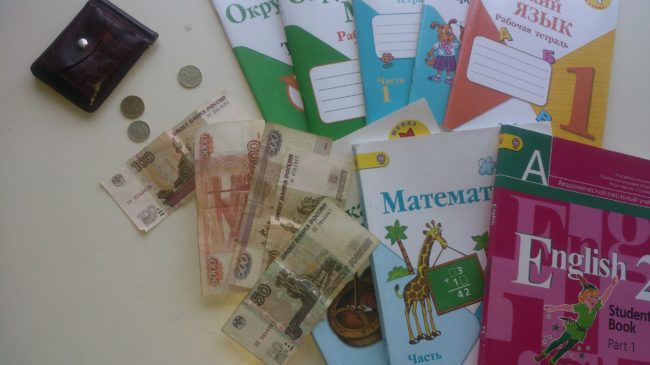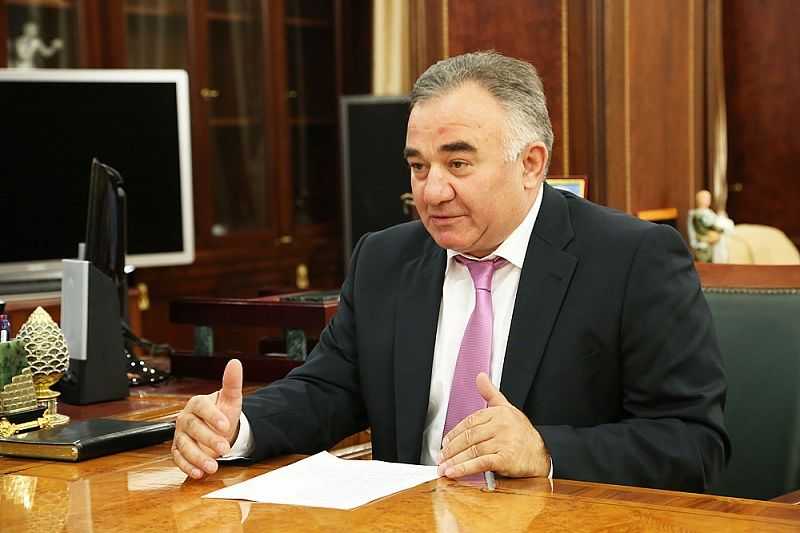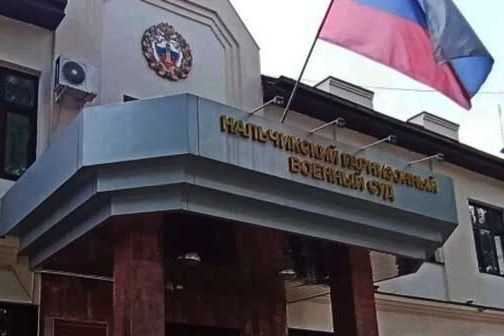

 An atmosphere of impunity and poor funding for schools in Kabardino-Balkaria has led to state schools being run as businesses, with a teachers making money at the expense of parents and their children.
An atmosphere of impunity and poor funding for schools in Kabardino-Balkaria has led to state schools being run as businesses, with a teachers making money at the expense of parents and their children.
‘Only paupers don’t pay’
Certain sections of Kabardino-Balkaria’s educational and municipal authorities have turned the republic’s educational institutions into their own personal racket. Heads of kindergartens, headteachers, sports trainers, and managers of utility companies are widely engaged in illegally soliciting cash donations from the public. The profitability of this kind of ‘business’ is facilitated by both the complete indifference of the authorities in Kabardino-Balkaria, and a lack of legal understanding among citizens of the republic. All over the place, money is being squeezed out of people on various pretexts. Zemfira Ozrokova from the town of Prokhlodnovo has been fighting against such fees for several years.
‘My daughter studies at School № 1 and it’s usual to have fees here’, she tells OC Media. ‘Parents pay for new textbooks, for repairs to the school building and the classrooms — this is an annual levy. Plus, every year we pay for [things like] curtains or blackboards, and two years ago we had to chip in for new windows. Last year we paid for everything and this year no doubt will be the same.’
According to Ozrokova, School № 3, considered to be ‘elite’ in Prokhlodnovo, is even more of a rip off. She talks about how parents’ failure to pay these ‘contributions’ can impact upon their child.
‘For five whole years I tried to protest. I wrote countless letters — but to no avail, as they [the teachers] have everything under their control. Knowing that the parents haven’t paid, the teachers will begin to humiliate the child and insist that the “pauper” either pay up or leave the school. But I’m a single mother!’
Unbreakable contracts
The same system of financial contributions exists in the majority of preschool institutions throughout the republic. One of these is Ogonek, Nalchik’s kindergarten № 23, which is attended by the 5-year-old son of Madina Shavayeva.
‘As well as the official fee — ₽1,500 ($25) per month — we also have to pay contributions every month for toiletries, then group photographs, excursions, and trips, which are literally imposed upon us, and we even have to pay for the curtains’, she tells OC Media. ‘Last year they collected money for new children’s lockers, but after they were finally installed, the children from that group were transferred to another room with old lockers. Now we’re expecting there to be further collections for furniture. The payments are collected without any proper registration, and when you point out to the head of the kindergarten that these collections are illegal, his response is to say “well, but you know the state is not funding us properly” ’.
OC Media also investigated how preschool institutions are supplied with food. A former teacher at kindergarten № 19, Galina Borisova, recounts how each kindergarten puts out a tender for a contract to supply food. Naturally the company supplying the best quality product wins the tender. The head of the kindergarten then enters into a long-term contract with the supplier, which can be for up to five years, the terms of which forbid it from being unilaterally terminated. Knowing the contract cannot be broken, the supplier often begins to supply the kindergarten with substandard or out-of-date products. The cooks usually throw these away and the children instead receive fruits, vegetables, sweets, or milk, either purchased by their own parents or grown in their own gardens.
Impossible to prove
Lawyer Mikhail Barokov explained to OC Media that according to Federal Law № 273, ‘On Education in the Russian Federation’, ‘all costs for the payment of teachers, the purchase of textbooks, and teaching aids — including computers and other digital technology — games and toys are to be provided by the regional administration’ — that is, in this case, the Ministry of Education of Kabardino-Balkaria.
‘Schools and kindergartens are obliged to provide everything free of charge – from teaching materials and textbooks to office equipment’, says Barokov. ‘Local authorities are responsible for repairs and maintenance of buildings, sports grounds, and playgrounds. It is their responsibility after all to take care of these things — they should not be collecting money from parents to pay for lawn equipment or planting trees!’
Article 101 of the law, however, contains a clause which essentially allows schools and kindergartens to collect money from parents ‘by contract’, for additional educational services. These include: training in additional educational programmes, teaching of specialist courses and disciplines, tutoring, in-depth study, and other services not provided as part of the standard curriculum.
‘Kindergartens and schools have very convenient loopholes’, he explains. ‘These are, for example, Article 41 of the law “On Education” and Article 1 of the law “On Charitable Activities” which state that charitable activities may be conducted for educational purposes, including in preschool institutions, and that kindergartens have the right to accept voluntary donations.’
According to Barkov, it is possible to penalise a kindergarten’s administration or school headteacher for demanding money or discriminating against children whose parents do not pay. However, proving that coercion or discrimination has occurred is almost impossible, and teachers can claim that a child is making up allegations in retaliation for bad grades or some other reason.
‘In addition, the collections are usually organised by the elected chairman of the parents’ committee. That is, the money is not given directly to the headteacher or teacher, but through a third party and there are no documents recording the transaction’, Barkov says.
Scandals
Nevertheless, sometimes it has been possible to convict school employees engaged in extortion. It’s possible for parents to report them, but then, as has been mentioned, there is a danger that their children will receive ‘special treatment’, so as a rule parents do not dare to demand that schools obey the law. Usually such attempts are stopped in their tracks. In the best-case scenario, the director of the school will receive an administrative penalty. Several recent such examples can be seen in several scandals which erupted last year:
- School № 11; Baksan: the prosecutor investigated a complaint from parents concerning illegal collections for food and repairs.
- Gymnasium № 25; Nalchik: the prosecutor of Kabardino-Balkaria investigated a complaint from a local resident about demands by the headteacher for donations. The donations — totaling ₽54,000 ($900) — were supposedly for equipment needed by the school.
- Terek: a group of teachers led by the headteacher of one school systematically extorted money from parents, supposedly to build classrooms.
In the first case, the culprits were let off with a reprimand, but the prosecutor in Baksan highlighted the need for the head of the town administration to eradicate such practices. In the second case, the head of the school received a warning about ‘the inadmissibility of violating the law’, and the third case resulted in the resignation of two teachers ‘of their own accord’.
A Soviet legacy?
How is it possible to explain such a dismissive attitude from law enforcement agencies and the authorities towards the extortion which flourishes in educational institutions in Kabardino-Balkaria? Margarita Shogenova, a veteran schoolteacher in Nalchik, believes that this system developed during the Soviet period.
She tells OC Media tha ‘schoolteachers always received a pittance, although they had to work hard not only within the school walls, but also outside — marking school work and tests written by pupils. In this situation, the state itself pushed them to bribery.’
According to Shogenova, ‘in Soviet times the price of obtaining an educational qualification was quite high and people received high marks in exchange for cash or other materials. Today there remains an extensive educational infrastructure and in the absence of funds for its maintenance, the school heads collect “tributes” from the students. Through organising various types of cash collections from parents, they not only enrich themselves, but they also manage to keep the schools entrusted to them in a more or less reasonable state. In such conditions, students get not so much as an education as a document to say that they completed school. They understand that high social status in Kabardino-Balkaria does not come through a high level of education, but rather through wealth or belonging to a particular clan.’








